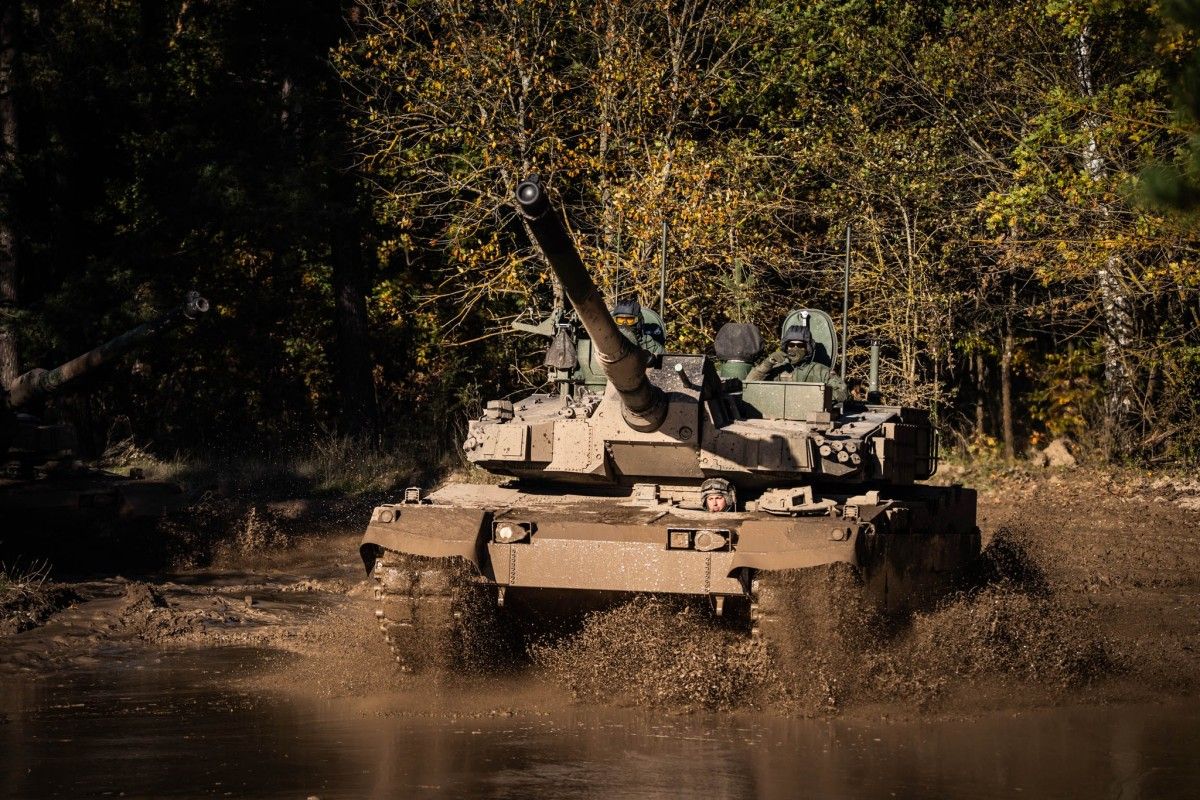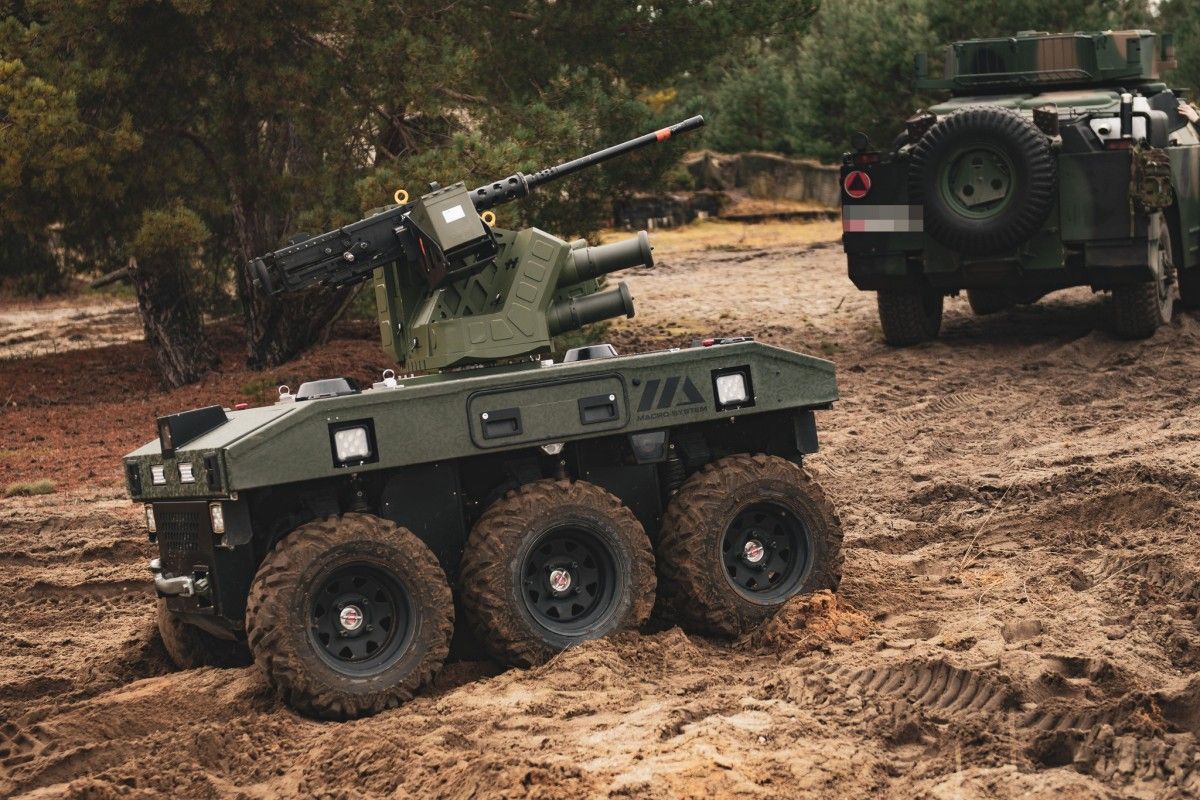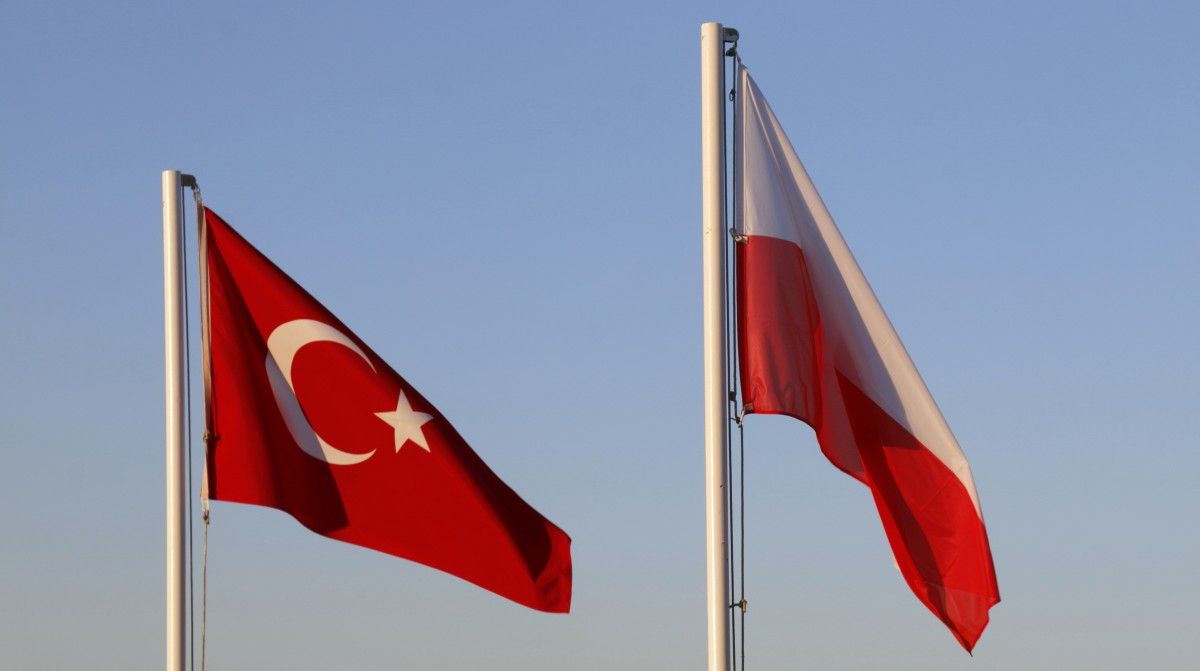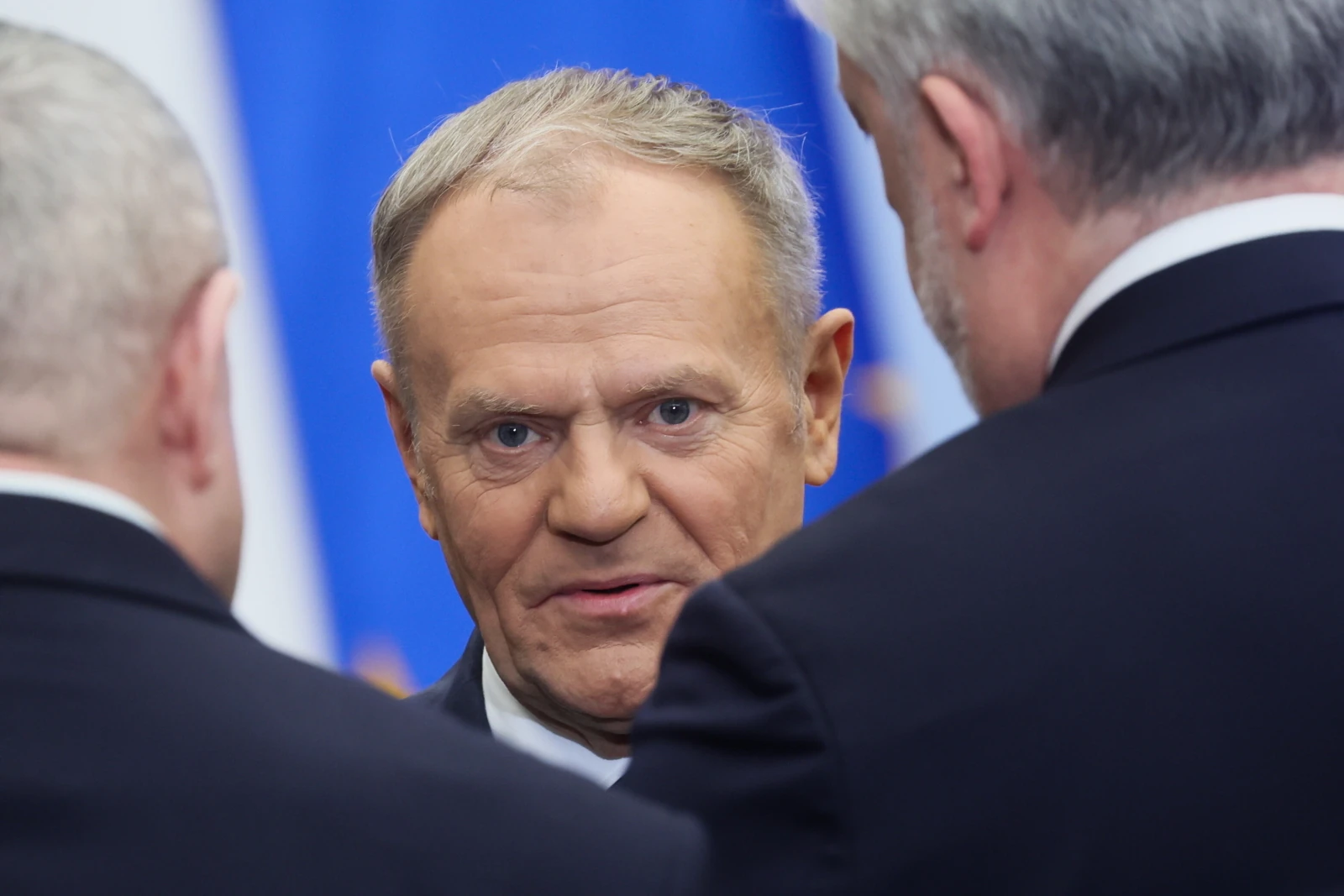Magdalena Kowalska-Sendek sits down with LtGen Maciej Klisz, Operational Commander of the Armed Forces, to discuss the way Russia is testing NATO and Poland, i. a. by violating our airspace and conducting cognitive warfare.

Threat is discussed in Poland more and more often, also due to the violations of our airspace by Russian drones. The question of whether war is imminent is probably one of the most frequently asked one in the public debate, and brought up in conversations with family and friends. Is the operational commander also faced with this question, and if so, how does he answer it?
Yes, sometimes I am confronted with this question. However, it’s impossible to answer it conclusively, as people have varying ideas about war. In my opinion, war is already ongoing, although not the kind we see on television, in the coverages from different places in the world, or even Ukraine, where people die in air strikes and soldiers shoot at each other using various types of weapons. We don’t have that in Poland, but in any other form, be it disinformation or cyber warfare, war is already here.
Definitions used to date have differentiated between peacetime, war and crisis. In the current global situation, these terms seem somewhat limited.
It’s true that these definitions don’t entirely correspond to the reality of the present day. When we used to talk about crisis, we usually meant something like the flood, but what we have been experiencing for several years now definitely escapes the definition of crisis. This situation is much better described by the North Atlantic Treaty, which calls it confrontation – and it seems to me we now live in the reality of permanent confrontation just below the threshold of war.
We have to make sure that we don’t experience war in its traditional sense, i.e. kinetic confrontation, and in order to do that we must be strong. We as Poland – in accordance with Article 3 of the North Atlantic Treaty, and we as NATO – in accordance with Article 5.
It is clear that Russia is testing the capabilities of both NATO and Poland. What else can we expect and how long will this testing continue?
Russia is testing us in every domain. According to analyzes we conduct at the Operational Command of the Armed Forces, and as predicted by the operational commanders of NATO’s eastern flank countries, the Baltic states, Romania and NATO’s Operational Commander, i.e., the Joint Force Commander in Brunssum, it will continue to test our responses and cohesion. We are expecting and we are prepared for the recurrence of previously implemented practices, such as violation of airspace, GPS interference, or exploiting illegal migration.

On the night of September 9/10 there was an unprecedented attack of drones. UAVs coming from Russia invaded our airspace. Later, two Russian fighter jets flew low over the Petrobaltic platform in the Baltic Sea. Will such scenarios happen again?
I think so. The mentioned drone attack was neither the first nor the last one. It turned out to be the largest one, but similar incidents had occurred before. As for the Russian fighters, though they did fly in the vicinity of the platform, they didn’t violate any laws and remained within the range of the Russian air traffic control. However, we can talk about violating airspace in the case of Estonia, where on September 22, MiG-31 fighters stayed within Estonian airspace for about 12 minutes.
As a society, we have to prepare for similar recurring attacks. Let me strongly emphasize this: prepare, not get used to them – such situations are against the law and far from normal.
When analyzing threats within NATO, we use the term TESSOC (Terrorism, Espionage, Sabotage, Subversion, Organized Crime). Considering this algorithm, I have no doubts as to the way we will be tested by Russia, and to be clear, I’m not referring to military matters only. Russia and Belarus attack in the military domain, but also in the area of diplomacy, economy or information, with the latter being most vulnerable and attacked most frequently.
This doesn’t sound very optimistic. Are we prepared to repel these attacks? Journalists, security experts, as well as retired military personnel have devoted much attention to the fact that we are using disproportionately expensive means to destroy drones.
If there is another attack, we will use all available forces and means to protect Polish citizens and territory. However, we must clearly distinguish between the procedures that apply in peacetime and those that would be implemented in wartime – their objectives, regulations for using force and other priorities are different. Peacetime procedures focus on mitigating risk and maximum security, as well as transparency towards the public; wartime procedures prioritize effectiveness, speed and, above all, achieving operational results. There is no country that can promise full protection against every attack – we operate within the realities of the risk, while applying all available means to ensure the safety of our citizens.
What about Israel? Its air defense is considered one of the strongest in the world.
Yes, Israel is the most cited example. Let’s explain: Israel, a country with an area similar to the Świętokrzyskie Voivodeship, also doesn’t have full protection against enemy air strikes, as exemplified by the attack on the Ben Gurion Airport, one of Israel’s key infrastructure facilities.

Meanwhile, new solutions are already being processed. In mid-October, the European Commission proposed to strengthen the eastern flank by building a drone wall. The integrated system is to be ready by the end of 2027, and reach initial operational readiness already next year.
I am glad these issues are being addressed, but for the time being they remain political matters. As the operational commander, I navigate within existing regulations and orders. That’s why in the event of threat we will protect Polish citizens using all currently available systems and weapons.
Let’s remain in the subject of airspace security. Minister Radosław Sikorski has recently announced that if Russian aircraft continue to violate Polish airspace, they will be shot down, and that Russians should consider themselves warned. What if Russia decides to test the validity of this warning? Are we ready to take that step and bear the possible consequences?
This is a good question. We’ve known each other for quite a while and you know I come from the special forces, the JWK Commando Military Unit, whose motto is Silent and Effective. Today, as the operational commander, I adhere to the United for Security principle. The combination of these two mottos best describes my attitude. If it were to happen, as the operational commander I would not hesitate to make the decision. I am backed by the law, established procedures and experience of my predecessors.
On the night of September 9/10, 2025, the Polish Armed Forces passed an important test. The fact that all procedures worked perfectly is a result of experiences, learned lessons, and detailed analyses of both the tragedy in Przewodów [on November 15, 2022, two people were killed as a result of a missile explosion], and the incident near Bydgoszcz [in December 2022 a Russian missile entered Polish airspace]. The current legal and political system enables the operational commander to make quick decisions and act effectively, which doesn’t mean, obviously, that we will shoot at any aircraft that violates our airspace. As NATO Secretary General Mark Rutte stated in one of his recent interviews, in each case it is crucial to evaluate the real threat.
We are talking about that for a reason. According to regulations, the operational commander is responsible for the protection of the airspace on behalf of the Minister of National Defense. How does this system work?
This is not as complicated as it may seem. According to the Act of October 12, 1990, on the Protection of the State Border, a foreign military aircraft that has crossed the state border and is flying within the airspace of the Republic of Poland without permission, can be requested by the state air traffic management authorities to leave the Polish airspace, change flight direction or altitude, or land at a designated airport. In the event of a failure to comply with such requests, we can decide to intercept the intruder with the help of our own or allied pair of aircraft on duty. If the intercepted foreign military aircraft fails to comply with the further instructions, it can be warned with warning shots, and in the event of its further failure to comply – destroyed. However, if we decide that the violating aircraft is used as a means of attack on the territory of the Republic of Poland, it will be destroyed without delay. An unmanned aerial vehicle that has illegally trespassed the state border can also be destroyed. The decision in such a situation is taken personally by the operational commander of the Polish Armed Forces. I want to emphasize, however, that on the night of September 9/10, 2025, when we experienced the largest to date Russian drone attack, although I personally decided on using combat means, I was not alone. I got support on both national and allied level.

Let’s talk about something that is not immediately apparent. Russia and Belarus are both attacking Poland not only through their actions on the border, in cyberspace, or in space, jamming our GPS signals. The battle is also ongoing in the information domain. How does this testing by Russia influence the morale of Poles?
A lot. Russia most effectively targets our weak points, which include public attitudes and a highly polarized society. In these circumstances, fomenting, inciting and manipulating public opinion is very easy and unfortunately happens too often.
Russia is looking to raise fear and cause chaos. When I was still a student of the National Defense University in Warsaw, commonly referred to as the school of generals [later succeeded by the War Studies University], and the US Army War College, I learned about Clausewitz’s principle that our defensive resistance is a combination of available means and capabilities multiplied by the strength of the will to resist. Therefore, if we have no willpower to resist, even state-of-the-art weapons will not help us. I have no doubt that undermining national or allied cohesion and unity has a long-term objective, which is to prolong or paralyze decision-making processes and the functioning of the state or organizations, when we think about the EU or NATO.
Security is not exclusively the domain of the armed forces. It is a system of interconnected vessels, in which equally important is the resilience of society – its capability to remain calm, trustful and cooperate under pressure. The army can protect the borders, but only a resilient society is going to keep the state in balance.
Let’s return to the beginning of our conversation. When we talk about various types of attacks, destabilizing the state’s political and social situation, it brings to mind cognitive warfare. Could we use this term to describe what we are currently experiencing?
I have no doubt that we are a subject of cognitive war waged by Russia. One of the elements of such warfare is disinformation, which is not the same as misinformation. Although both terms refer to false information, there is a colossal difference between them as to the intention of the creator. Disinformation is a deliberate action aimed at exerting negative impact and manipulation. Both of these phenomena can be observed in the Polish information space. We often share content without any second thought, passing on anything that seems interesting, funny or shocking. We fall into traps. We rely on the opinions of pseudo-experts, we believe false opinions, we fall for fake news. It is very easy to get lost in the world of likes, Patronite and Buy Me a Coffee [financial support offered to favorite internet content creators], when in fact our actions can be simple – just check the source of information before you pass it on.
There is also a lot of disinformation about what is happening on Poland’s eastern and western border. Our soldiers have been in Podlasie for four years, and on the western border for several months.
Migration is a tool of warfare, and the information on the subject is used as a weapon. For four years we have been supporting the Border Guard in protecting the tightness of the Polish-Belarusian border, where the situation is still tense. We also cooperate with the border guards on the border with Lithuania, where controls have been reinstated, and Latvia, as well as along the western border of Poland.
The current situation on the eastern border is best summed up with the proverb about boiling a frog – we are gradually getting used to the deteriorating circumstances and we fail to notice the threat until it’s too late. Therefore, I warn against getting used to what is happening there and urge everyone to stay alert. My reaction to a report saying that today there have been “only” 50 attempts to cross the border illegally, is asking: “Only?!” To which I hear that there used to be 300. We cannot get accustomed to the threat and lose our vigilance. It is not about being afraid, but about being aware and responsible. The statistics are not optimistic: by October 15, 2025 we had half as many attempts to illegally cross the border than at the same time last year. Don’t be fooled into thinking the border is safe, and the people who try to cross it are only those who seek refuge in Europe. All those who doubt my words are welcome to visit the grave of Sgt Mateusz Sitek [on May 28, 2024, he was fatally stabbed in the chest during service on the border].
According to a recent survey, the level of trust Polish people have in the army reached 93.3% in September 2025, which is the highest in the ten-year history of IBRiS research. Therefore, the question I want to ask to one of the most important commanders in our army is how to fight disinformation and not become a victim of cognitive war?
There is no magical recipe or single formula for success. We definitely have to focus on education, learn to verify shocking information, and above all use official, reliable sources. I am aware that the messages are often disappointing because they don’t comply with our vision of the world and we feel manipulated. However, if you trust the military, let us do our job. Read what we communicate. It’s not a fair fight, because as they say, a lie can travel half way around the world while the truth is putting on its shoes. Nevertheless, we have to try and do what we are supposed to do. That’s why we attach great importance to proper communication at the Operational Command of the Armed Forces. We try to inform quickly, accurately and clearly, adjusting the language of the message to the civilian recipient.
Many people work towards this high level of trust in the military. It’s not the merit of one or another general who appears on TV, but everyone who wears a uniform, the personnel of the Ministry of Polish Defense, as well as the people connected with the military, working towards security. The result is truly impressive and we must not betray this trust. Credibility is one of the more important elements of deterrence, and trust is our strategic asset – it brings together the uniform and the society.
LtGen Maciej Klisz has been the Operational Commander of the Polish Armed Forces since October 2023. Previously, he commanded the Territorial Defense Forces, he served in the special forces and the 6th Airborne Brigade. He participated twice in the mission in Bosnia and Herzegovina. He was the first Polish officer to be appointed SOF Advisor at the Response Operations Forces Command in Germany. In 2015, he was the Chief of Staff of the NATO Special Operations Component Command in Afghanistan (NSOCC-A).












